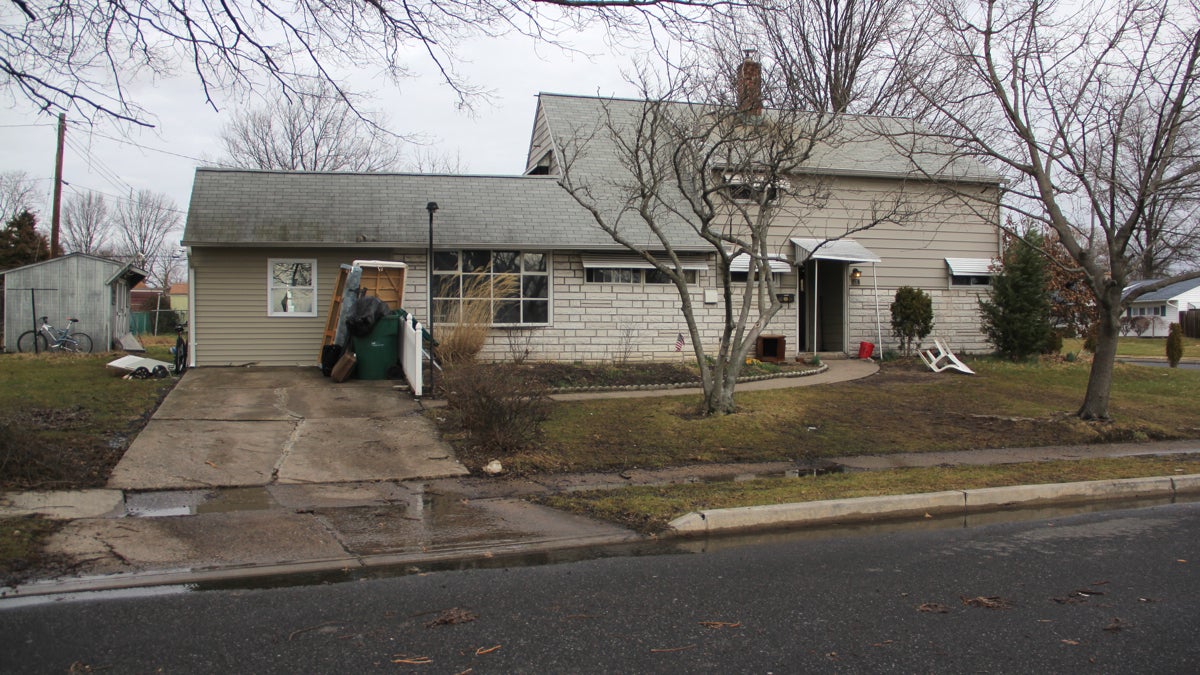Bristol Township in Bucks Co. eyes reining in recovery houses, but is it legal?

A recovery home on Gooseneck Road in Bristol Township. (Emma Lee/WHYY)
After months of debate, Bristol Township has a plan to restrict sober-living houses.
The Lower Bucks municipality is home to more than 100 of the homes, some of which officials say are unsafe. The proposed zoning ordinance would put in place checks on new homes — where and if they can open. It has support from some recovery house owners — but not civil rights attorneys. Bryan Kennedy operates three recovery houses in Bristol and said he’s in favor of the changes.
“I’m just trying to aid them in creating a better reputation in our community as a whole for these services,” he said. Kennedy is a member of the Bucks County Recovery House Association (BCRHA), an organization of dozens of recovery homes that adhere to shared set of rules and accountability measures to become members.
Neither Pennsylvania nor the federal government regulate recovery homes, leaving peer associations like BCRHA to step in and fill the void. In addition to the over 50 peer-certified recovery houses, Bristol officials estimate there are dozens of undeclared, uncertificed houses in the township.
The proposed zoning changes were introduced as a way to limit the houses’ growth, and to shut down unsafe, or “rogue” houses.
Under the proposed zoning ordinance, existing recovery homes that meet certain quality criteria would be grandfathered in, according to Kennedy, while newcomers would be restricted to opening in certain neighborhoods.
Bristol has struggled to respond to rapid growth of recovery houses over the last five years, and officials put forth the proposed zoning as a way to enforce a certain base level of safety and a way to plan the growth of the houses.
“I think it’s incredibly vague,” said Michael Allen, a civil rights lawyer with a specialty in fair housing law. His worry is the wording of the proposed zoning ordinance leaves the door open for discriminatory application — that it could be used to bar all new recovery houses, not just those that operate unsafely.
The draft ordinance includes requirements such as following “the applicable regulations of the United States of America, Commonwealth of Pennsylvania and/or the County of Bucks governing this specific use” and ll certifications and/or licenses issued by the United States of America, Commonwealth of Pennsylvania and/or the County of Bucks for this specific use shall be obtained prior to the granting of a permit by the Zoning Officer.” It’s these conditions that Allen said are “vague.”
Some of the other language, such as the 300 foot distance requirement for houses applying to operate in residential areas, is outright discriminatory, said Allen.
“The test I always do for myself is to ask whether anybody would put up with other kind of spacing requirements, like if you have children in your house, you have to be 300 feet away from any other houses with children, or Catholics, or African-Americans,” he said. Under federal fair housing law, a person in drug or alcohol recovery is a member of a protected class.
None of the Bristol Township council members or township staff contacted granted requests for comment.
The township council is expected to vote on the proposal August 18th, following some tweaks to the language and an advertisement period.
WHYY is your source for fact-based, in-depth journalism and information. As a nonprofit organization, we rely on financial support from readers like you. Please give today.

